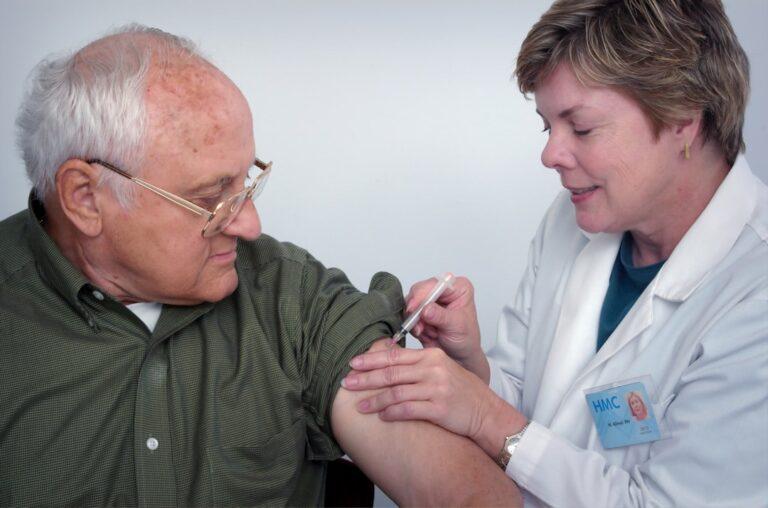Unstable Angina
Get valuable insights into Unstable Angina, including its causes, symptoms, prevention strategies, and treatment options, while also learning about how you can lower the cost of the medications used to treat Unstable Angina.
MEDICAL INFORMATION
Unstable Angina Key Facts
Related Medications
What is the definition of unstable angina?
Unstable angina is a type of angina pectoris, a condition that occurs when the blood flow to the heart muscle is restricted, typically due to narrowing or blockage of the coronary arteries. Unlike stable angina, unstable angina is unpredictable and can occur at rest or with minimal exertion. It is considered a medical emergency and requires immediate attention. If you have unstable angina, you will have heart disease and you will be at risk of a heart attack, cardiac arrhythmias or heart failure.
What are the causes and risk factors associated with unstable angina?
Unstable angina, which is a type of Acute coronary syndrome (ACS), is typically caused by the formation of a blood clot on a narrowed coronary artery, leading to the restriction of oxygen-rich blood supply to the heart. Several factors contribute to the development of unstable angina.
Atherosclerosis
The most common cause of unstable angina is coronary artery disease due to the presence of atherosclerosis, which is the buildup of plaque in the coronary arteries. Plaque is composed of cholesterol, fatty deposits, calcium, and other substances that narrow the arterial walls and impede blood flow. If the plaque ruptures or forms a blood clot (thrombus), it can partially or completely block the artery, leading to unstable angina.
Coronary Artery Spasm
In some cases, unstable angina can occur due to the sudden constriction or spasm of the coronary arteries, reducing blood flow to the heart. The exact cause of these spasms is not always clear, but they can be triggered by various factors such as emotional stress, exposure to cold temperatures, or use of certain medications.
Risk Factors
- Age and Gender: Unstable angina tends to occur more frequently in older individuals, especially men. However, after menopause, women’s risk of developing unstable angina increases and approaches that of men
- Smoking: Tobacco smoke contains numerous harmful substances that contribute to the development of atherosclerosis and blood clot formation, increasing the risk of unstable angina
- High Blood Pressure: Hypertension damages the arterial walls and accelerates the progression of atherosclerosis, making it more likely for blood clots to form
- High Cholesterol Levels: Elevated levels of LDL (low-density lipoprotein) cholesterol and triglycerides in the blood contribute to the formation of plaque in the coronary arteries
- Diabetes: Individuals with diabetes have an increased risk of developing atherosclerosis, which raises their susceptibility to unstable angina
- Obesity: Excess body weight, particularly around the waist, increases the risk of developing atherosclerosis and unstable angina
- Family History: Having a family history of cardiovascular disease, including unstable angina, increases the likelihood of developing the condition
- Sedentary Lifestyle: Lack of regular physical activity is associated with an increased risk of developing unstable angina
- Stress and Mental Health: Chronic stress, anxiety, and depression can contribute to the development and progression of cardiovascular disease, including unstable angina
- Certain Medical Conditions: Conditions such as chronic kidney disease, rheumatoid arthritis, and autoimmune disorders may increase the risk of unstable angina
It’s important to note that unstable angina can occur in individuals without known risk factors as well. Understanding and managing these high risk factors through lifestyle changes, medication adherence, and regular medical check-ups can help reduce the risk of developing unstable angina and related complications. If you have concerns about your risk or symptoms, it is recommended to consult with a healthcare professional for proper evaluation and guidance.
What are the symptoms of unstable angina?
The symptoms of unstable angina may include:
Chest Pain or Discomfort
The hallmark symptom of unstable angina is chest pain or discomfort. It is typically described as a tightness, pressure, squeezing, or heaviness in the chest. The pain may radiate to the neck, jaw, shoulder, back, or arms, most commonly the left arm. It is important to note that the chest pain experienced in unstable angina may be more severe and prolonged compared to stable angina.
Shortness of Breath
Unstable angina can cause a feeling of breathlessness or difficulty breathing, even at rest or with minimal activity. This symptom is often associated with the chest pain and is a result of the worsening oxygen supply to the heart muscle.
Fatigue
Unexplained fatigue or weakness may occur as a symptom of unstable angina. The decreased blood flow to the heart muscle can lead to reduced energy levels and a sense of overall tiredness.
Nausea and Indigestion
Some individuals with unstable angina may experience feelings of nausea, indigestion, or discomfort in the upper abdomen. These symptoms may be accompanied by vomiting in some cases.
Profuse Sweating
Excessive sweating, often referred to as diaphoresis, can occur during an episode of unstable angina. The sweating may be more pronounced and unrelated to physical exertion or ambient temperature.
If you experience any of these symptoms, particularly if they are new, severe, or persistent, it is crucial to seek immediate medical attention by calling NHS 111 or dialling 999 in the UK, or dialling 911 in the US for emergency services. Unstable angina can progress to a heart attack or other life-threatening complications, so prompt evaluation and appropriate treatment are essential.
How is unstable angina diagnosed?
Below are common diagnostic approaches used for diagnosing unstable angina:
Medical History and Physical Examination
- Symptoms Assessment: The healthcare provider or cardiology specialist will inquire about the nature, frequency, and duration of chest pain or discomfort, as well as any associated symptoms such as shortness of breath, sweating, or fatigue
- Risk Factors Evaluation: A thorough assessment of cardiovascular risk factors, such as smoking, family history, high blood pressure, high cholesterol, diabetes, obesity, and sedentary lifestyle, will be conducted
- Physical Examination: The healthcare provider will perform a physical examination, including checking blood pressure, listening to the heart and lung sounds, and evaluating any signs of cardiovascular disease or complications
Electrocardiogram (ECG/EKG)
- Resting ECG: This is a non-invasive test that measures the electrical activity of the heart. An ECG can help identify abnormalities, such as ST-segment changes, which can indicate ischemia (insufficient blood flow to the heart) and suggest unstable angina
- Exercise Stress Test: In some cases, an exercise stress test may be performed to evaluate the heart’s response to physical activity. This test involves monitoring the heart’s electrical activity while the individual exercises on a treadmill or stationary bike
Blood Tests
Cardiac Biomarkers: Blood tests, such as troponin levels, are used to measure the presence of specific proteins released into the bloodstream when the heart muscle is damaged. Elevated troponin levels may indicate myocardial injury or ischemia.
Imaging Tests
- Echocardiogram: This test uses ultrasound waves to create images of the heart’s structure and function. It can assess the heart’s pumping ability, the movement of the heart valves, and the presence of any structural abnormalities
- Coronary Angiography: This invasive procedure involves injecting a contrast dye into the coronary arteries and taking X-ray images to visualize the blood flow and detect any blockages or narrowing
What are the treatment options for unstable angina?
The treatment for unstable angina aims to relieve symptoms, prevent complications, and reduce the risk of a heart attack. The specific treatment approach may vary depending on the severity of the condition, underlying causes, and individual factors. Here are the common treatment options for unstable angina:
Medications
- Nitroglycerin: Nitroglycerin is commonly used to relieve chest pain associated with unstable angina. It helps relax and widen the blood vessels, improving blood flow to the heart
- Aspirin: Aspirin is often prescribed to individuals with unstable angina, as it helps prevent blood clot formation by reducing the stickiness of platelets
- Antiplatelet Medications: Other antiplatelet medications, such as clopidogrel or ticagrelor, may be prescribed to further reduce the risk of blood clots
- Beta-blockers: Beta-blockers help lower heart rate and blood pressure, reducing the workload on the heart and improving blood flow
- Calcium Channel Blockers: These medications relax and widen the blood vessels, improving blood flow and reducing chest pain
- Statins: Statin medications are used to lower cholesterol levels and reduce the progression of atherosclerosis
- ACE Inhibitors or Angiotensin II Receptor Blockers (ARBs): These medications are often prescribed to manage high blood pressure and improve heart function
Oxygen therapy
If there is evidence of decreased oxygen supply to the heart, supplemental oxygen may be administered to increase oxygen levels in the blood and relieve symptoms.
Lifestyle modifications
- Smoking Cessation: Quitting smoking is crucial to reduce the risk of further damage to the blood vessels and improve overall cardiovascular health
- Healthy Diet: Adopting a balanced diet low in saturated and trans fats, cholesterol, and sodium can help manage blood pressure and cholesterol levels
- Regular Exercise: Engaging in regular physical activity, as recommended by a healthcare professional, can improve cardiovascular health, reduce the risk factors, and manage weight
- Stress Management: Stress reduction techniques such as relaxation exercises, meditation, and counseling can help manage stress and promote heart health
- Medication adherence: Taking prescribed medications as directed and attending regular check-ups
Cardiac procedures
- Coronary Angioplasty and Stenting: This cardiac catheterization procedure involves the insertion of a catheter with a balloon at the end into the narrowed coronary artery. The balloon is inflated to compress the plaque and widen the artery. A stent (a small mesh tube) may be placed to keep the artery open
- Coronary Artery Bypass Grafting (CABG): CABG is a surgical procedure in which blocked coronary arteries are bypassed using blood vessels taken from other parts of the body. This allows blood to bypass the blocked or narrowed arteries, improving blood flow to the heart. However, recent studies have shown that treatment with bypass surgery have less favorable outcomes on patients with unstable angina (UA) compared with those with stable angina
What medications are used in unstable angina?
Antiplatelet Agents
- Aspirin: Reduces the risk of blood clots by inhibiting platelet aggregation
- P2Y12 inhibitors: Examples include clopidogrel, ticagrelor, and prasugrel
These medications further inhibit platelet activation and aggregation.
Nitroglycerin
Sublingual nitroglycerin: Provides rapid relief of chest pain by relaxing and widening blood vessels.
Beta-Blockers
- metoprolol
- carvedilol
- atenolol
- bisoprolol
These medications reduce the workload on the heart, lower blood pressure, and decrease the heart’s oxygen demand.
Calcium Channel Blockers (CCBs)
- nifedipine
- diltiazem
- verapamil
These medications help relax and widen blood vessels, reducing the heart’s workload and improving blood supply to the heart.
Angiotensin-Converting Enzyme (ACE) Inhibitors or Angiotensin Receptor Blockers (ARBs)
- ramipril
- lisinopril
- valsartan
These medications may be prescribed to lower blood pressure and reduce the strain on the heart.
Statins
- atorvastatin
- rosuvastatin
These medications are often prescribed to lower cholesterol levels and reduce the risk of plaque buildup in the coronary arteries.
Heparin or Low Molecular Weight Heparin (LMWH)
These anticoagulant medications help prevent blood clots from forming or growing larger, reducing the risk of heart complications.
What organisations are available to support me with Unstable Angina in the UK?
Unstable angina, a form of acute coronary syndrome, can be alarming for patients and their families. In the UK, several organisations offer support, information, and resources to help those affected by this condition and other related heart conditions. Here are some notable organisations:
- British Heart Foundation (BHF). As the UK’s leading heart charity, BHF provides a wealth of information about all kinds of heart conditions, including unstable angina. They offer patient information leaflets, support groups, and helplines
- NHS (National Health Service): The NHS is the UK’s public health service and provides comprehensive information about a wide range of health conditions, including unstable angina. They have detailed pages with symptoms, treatments, and preventive measures
- Heart UK – The Cholesterol Charity. While their primary focus is on cholesterol and lipid conditions, they offer a variety of resources and advice about heart health in general
- Arrhythmia Alliance. While primarily focused on arrhythmias, they offer a wide range of resources and support for people with various heart conditions
- Cardiac Risk in the Young (CRY). Though they primarily focus on young people and sudden cardiac deaths, they provide information and support for a range of cardiac conditions
What organisations are available to support me with Unstable Angina in the US?
In the U.S., individuals diagnosed with unstable angina and other related heart conditions have access to several reputable support organizations. These organizations offer a combination of educational resources, advocacy efforts, patient communities, and outreach programs:
- American Heart Association (AHA). One of the largest and most well-known organizations dedicated to fighting heart disease and stroke. The AHA provides comprehensive information on various cardiovascular diseases, including unstable angina, prevention, and lifestyle tips
- American College of Cardiology (ACC). The ACC offers educational resources and advocacy for cardiologists, but they also provide patient-centered resources on heart health, diseases, and conditions
- Mended Hearts. An organization that offers the gift of hope to heart disease patients, their families, and caregivers through support groups, patient advocacy, and educational programs. They also offer an online community where patients and families can share their stories and seek advice
- WomenHeart. The National Coalition for Women with Heart Disease**: Specifically focused on women with heart disease, they offer support, resources, and education. Given that heart disease may manifest differently in women, this organization provides unique insights and advocacy for women’s heart health
- Angina.com. Sponsored by Gilead Sciences, Inc., this website provides extensive information about chronic angina, including treatment options, patient stories, and resources for managing the condition
- CardioSmart. An initiative by the American College of Cardiology, CardioSmart offers patient-centered resources, tools, and information on heart diseases, including angina
Summary
Unstable angina is a serious condition that requires prompt medical attention. Recognizing the symptoms, understanding the risk factors, and seeking immediate treatment are crucial to prevent complications such as heart attack or cardiac arrest. If you experience symptoms of unstable angina, contact emergency services or seek medical help right away. With proper diagnosis, treatment, lifestyle modifications, and adherence to prescribed medications, the prognosis for unstable angina can be significantly improved, reducing the risk of adverse cardiac events and improving overall heart health.
Medical Disclaimer
NowPatient has taken all reasonable steps to ensure that all material is factually accurate, complete, and current. However, the knowledge and experience of a qualified healthcare professional should always be sought after instead of using the information on this page. Before taking any drug, you should always speak to your doctor or another qualified healthcare provider.
The information provided here about medications is subject to change and is not meant to include all uses, precautions, warnings, directions, drug interactions, allergic reactions, or negative effects. The absence of warnings or other information for a particular medication does not imply that the medication or medication combination is appropriate for all patients or for all possible purposes.









